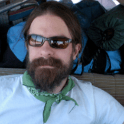
David Barbeau
Associate Professor, SEOE. Clastic sedimentology, tectonics and sedimentation, basin analysis, thermochronology, sediment provenance, and tectonics of the southern Andes and Antarctica.
Studies of the physical, chemical, and biological processes that integrate to affect dynamics of the Earth, with a view to understanding both forces driving changes to the Earth and ways to mitigate or adapt to such changes. This includes studies of the geosphere, hydrosphere, atmosphere, biosphere and anthrosphere (including, eg, economics). Faculty are actively involved in interdisciplinary research across two or more of these spheres.

Associate Professor, SEOE. Clastic sedimentology, tectonics and sedimentation, basin analysis, thermochronology, sediment provenance, and tectonics of the southern Andes and Antarctica.

Our interdisciplinary hydrology lab integrates mechanistic and machine learning models with field observations, remote sensing, and community expertise to address pressing challenges in surface water systems. We are committed to co-produced and convergent research, ensuring that our science is rigorous, relevant, and responsive to community needs. By linking advanced modeling with real-world context, we generate actionable knowledge to support sustainable water management, strengthen climate resilience, and protect freshwater ecosystems.
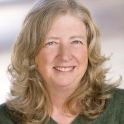
We focus on evolutionary, functional and behavioral ecology, with applications to conservation and environmental issues. The major question is how environmental change and variation affect life history traits, population structure and dynamics, and species interactions over ecological and evolutionary time. Environments vary on multiple spatial and temporal scales. Additionally, both the abiotic and biotic components of the environment may vary, for example in cases of species' invasions.
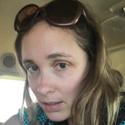
Marine biogeochemistry, Marine nitrogen cycle, Nitrogen and carbon stable isotopes, Molecular microbial ecology, Dissolved gases (N 2 , O 2 , Ar) as tracers of oceanic physical and biological processes, Trace gas production (N 2 O) in marine environments, Chemosynthetic deep-sea ecosystems, Oxygen minimum zones.

Dr. Cisneros de León’s research explores the complex processes and timescales that shape Quaternary magmatic systems responsible for explosive eruptions. His work focuses on the microanalysis of geochronologically significant accessory minerals, particularly zircon, integrating field observations with petrochronology, high-temperature geochemistry, thermochronology, chemical diffusion studies, and thermochemical modeling.
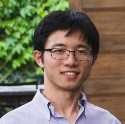
Microbes interact among themselves and with the physical world. They respond to environmental changes in ways that shape the physical world in turn. I develop, apply, and integrate novel methods in microbial ecology and geochemistry to study these intricate relationships found in marine environments.

Dr. Ryker explores connections between reformed classroom practices, student learning, teaching beliefs and the implementation of inquiry-based labs in introductory geoscience lectures and labs. Her research interests also include online educational resources, professional development, and student learning strategies and engagement in large introductory courses. She is part of a team looking at the connection between teaching beliefs and practices for geoscience faculty members at a variety of institutions across the country.
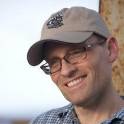
Most of the Earth's surface is hidden underwater, from the deep seafloor to wetland environments. Revealing the patterns and processes in these marine environments is the overarching theme of Scott's research group in marine geology and geophysics.
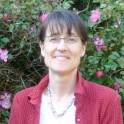
My research is in the field of hydrogeology, from the role of groundwater in coastal ecohydrology to the origin and evolution of porewaters in large sedimentary basins. A particular focus right now is submarine groundwater discharge (SGD), which discharges nutrients and other solutes to coastal systems ranging from tidal creeks to the continental shelf.